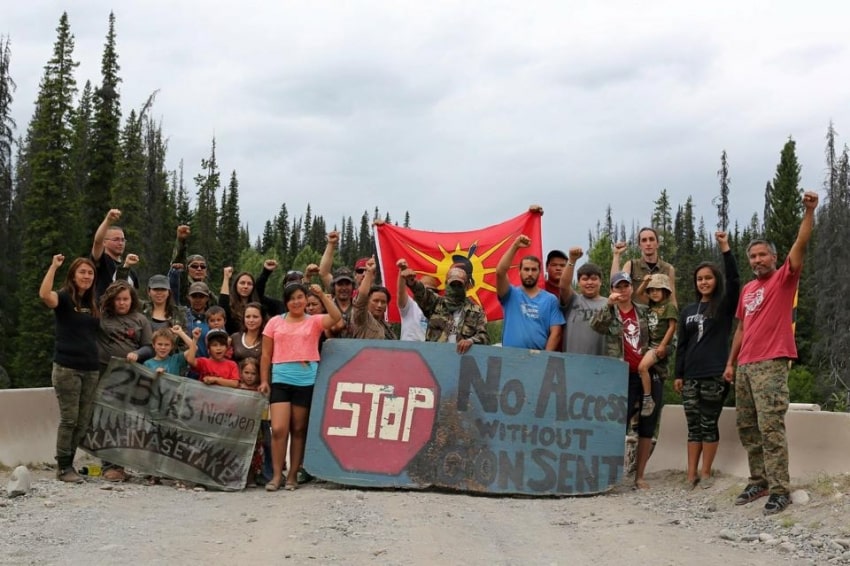The Wet’suwet’en people living on their traditional territory at the Unist’ot’en Camp have put out a call asking for people to come live with them, to help protect their land from the TransCanada Coastal Gaslink pipeline. TransCanada is threatening escalation on the camp, and they are in need of support.
In solidarity with Unist’ot’en, and in support of the US activists who decide to go live in beautiful Unist’ot’en territory, we have created a primer for crossing the border into Canada, and what to expect if you are arrested there. Please read, enjoy, and share with all who want to cross borders in the name of justice!
CLDC KYR Canada
For history, values, the current state of affairs, and more information about the Unist’ot’en camp, how to visit and what to bring; please see: https://unistoten.camp/
October 1st press release from camp:
“The Wet’suwet’en Hereditary Chiefs condemn ongoing attempts by the governments of British Columbia and Canada to force unwanted industrial projects onto Wet’suwet’en traditional territories (Yin’tah) by ignoring the jurisdiction and title of the Wet’suwet’en people as represented by the Hereditary Chiefs (Dinï ze’ and Ts’akë ze’).
Violating Anuk Nu’at’en (our laws), Canadian law, and the UN Declaration on the Rights of Indigenous Peoples, BC and Canada have permitted TransCanada to work on their Coastal Gaslink pipeline within our Aboriginal title territories without obtaining our consent or undertaking meaningful consultation.
“The territory –the Yin’tah, the land, the air, the water – that all belongs to the Wet’suwet’en people. We’ve never ceded nor surrendered nor signed a treaty to give away any of that authority to anybody,” stated Dinï ze’ Na’Moks, head chief of the Tsayu Clan. “If there are decisions to be made on our land, it is our decision and nobody else’s.”
The Wet’suwet’en people have never lost in court against BC or Canada. In the Delgamuukw-Gisday’wa decision, the Supreme Court of Canada ruled that Wet’suwet’en rights and title had never been extinguished across the 22,000km2 of Wet’suwet’en Yin’tah. As was upheld in the Tsilhqot’in decision, Aboriginal title includes the right to exclusive use and occupation of land, and the right to decide its use.”
See their whole press release here!

